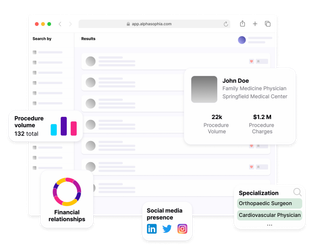Cracking the Code: Science-Based Books that will make you better at Selling to Physicians

In the competitive landscape of medical sales, capturing and maintaining the attention of physicians is crucial for success. To excel in this arena, sales professionals need to employ evidence-based strategies that resonate with physicians. Drawing from insights in five science-backed books, here are detailed strategies to refine your approach and elevate your success in selling to physicians.
Book 1: “Pitch Anything: An Innovative Method for Presenting, Persuading, and Winning the Deal” by Oren Klaff
Key Insight: Frame Control - Klaff emphasizes, “Whoever frames the argument first has the upper hand.”
Example: In medical device sales, a representative might begin a presentation by framing the discussion around patient outcomes. They could share a compelling case study where the use of their device led to a significant improvement in patient recovery times. By framing the conversation around positive outcomes, the representative sets a persuasive tone for the rest of the presentation.
Book 2: “Influence: The Psychology of Persuasion” by Robert B. Cialdini
Key Insight: Reciprocity - Cialdini states, “The way to love anything is to realize that it may be lost.”
Example: A sales representative could offer physicians access to exclusive training sessions or educational materials related to the use of their medical device. By providing valuable resources upfront, the representative triggers a sense of reciprocity in the physicians, encouraging them to engage more deeply with the sales process.
Book 3: “To Sell Is Human: The Surprising Truth About Moving Others” by Daniel H. Pink
Key Insight: Attunement - Pink suggests, “The purpose of a pitch isn’t necessarily to move others immediately to adopt your idea. The purpose is to offer something so compelling that it begins a conversation, brings the other person in as a participant, and eventually arrives at an outcome that appeals to both of you.”
Example: A medical device sales representative conducts thorough research on a physician’s recent publications and clinical interests before a meeting. During the presentation, the representative references the physician’s work and highlights how their device aligns with the physician’s research interests. This approach engages the physician as a participant in the discussion and increases the likelihood of a mutually beneficial outcome.
Book 4: “The Challenger Sale: Taking Control of the Customer Conversation” by Matthew Dixon and Brent Adamson
Key Insight: Insight Selling - Dixon and Adamson argue, “Challengers bring new insights to the table—insights into customers’ businesses and into the solutions their companies provide.”
Example: A sales representative challenges a physician’s current treatment approach by presenting data from clinical studies that demonstrate the superior efficacy of their medical device. By providing unique insights and challenging the physician’s beliefs, the representative prompts the physician to reconsider their current practices and explore new solutions.
Book 5: “Never Split the Difference: Negotiating as if Your Life Depended on It” by Chris Voss
Key Insight: Tactical Empathy - Voss advises, “Negotiation isn’t an act of battle; it’s a process of discovery. The goal is to uncover as much information as possible.”
Example: During contract negotiations, a sales representative actively listens to the physician’s concerns and empathizes with their position. They acknowledge the physician’s need for cost-effective solutions while emphasizing the long-term benefits of their medical device in improving patient outcomes. By employing tactical empathy, the representative builds trust and collaboratively explores solutions that meet both parties’ needs.
Find unique insights into physicians with Alpha Sophia

With Alpha Sophia, you can access valuable insights into physicians’ preferences and clinical practices, enabling you to tailor your approach effectively. By combining these insights with science-backed strategies like frame control and reciprocity, you can directly captivate physician attention and drive successful outcomes in your medical sales interactions.
